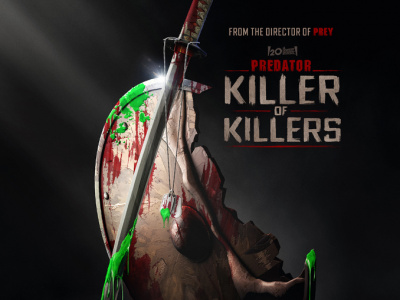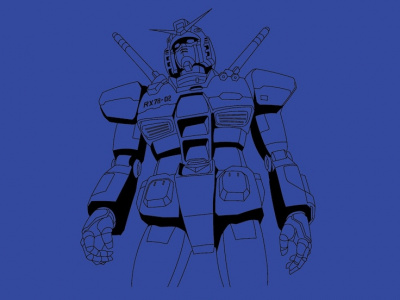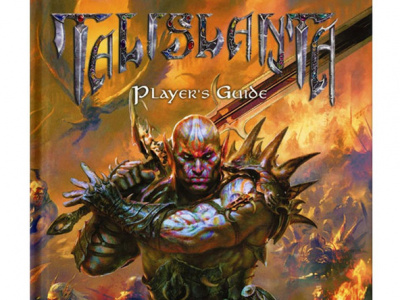We recently spent some time with Marvel publisher Dan Buckley for our annual discussion of the state of the comics business and Marvel's place in it. In Part 3, we discuss Marvel's editing policies for changing content for different audiences, its current Web strategy, and its perspective on legal and illegal comic downloads. In Part 1, we went through the state of the market on a channel by channel basis, and asked how Marvel will handle its publishing program for its big movie year in 2007. In Part 2, we talked about Marvel's latest efforts to increase its sales to female consumers. And in Part 4, we talk about the Civil War delays and the challenges and opportunities in 2007.
This leads to the general question of how you handle different packages of the same editorial material for different channels. A few months ago we started to get comments indicating that Marvel is editing some books differently from the way they appeared in their original format (going back to the black and white magazines like Tomb of Dracula, or even with Runaways), before you put them out in different formats for different channels. Can you talk about what Marvel's internal policies are for those editorial changes when you repackage?
The only product that we've run into that on would be the Target books. If I'm wrong, feel free to correct me. There were some editorial content changes for the Target oversized books; other than that, I don't think we've really done that. Runaways was part of that initial launch, and that was done because Target looked at it as being an all-ages racking area. And also sometimes the page count led to editing some stuff down to fit the physical format that we agreed upon at a certain price point.
It's on a case by case basis and I think we've only done it for Target books. Do you have another instance?
The other one was Tomb of Dracula for The Essential Dracula reprint.
I don't even know what they did. Do you have an idea what it was?
We saw one of the edited scenes on a blog. They had the pages side by side and it was a semi-nude victim getting strangled by a vampire. The original had the breasts exposed, the Essential version didn't.
I'm quite sure it was due to the fact that... it's a case by case basis, and that isn't even a channel issue. That wasn't because we were going to bookstores, or because we were exclusively going to hobby shops. It probably had more with where we were at from a ratings standpoint and the editors felt that was the appropriate thing to do, considering how we communicate what's going on in our books from a packaging standpoint.
The Essential packages will be distributed and a lot of people are collecting those and giving them to their kids as gifts. It's not like the oversized magazine presentation that was done in the 70s, racked with horror. There isn't a standard policy for it. I think you've got to just realize what the books are being packaged for and think about what demographic you're hitting with it. That decision didn't work its way up to me; that was probably a conversation with sales.
So there's no company-wide policy, the editors just deal with it as it comes up?
Yes. We generally avoid nudity, unless it's a Max title. We don't want to take an Essential volume and start calling it Max; then you get into branding issues. I give Essential books to my nieces and nephews, because it's thick, they think it's cool and usually fairly safe material. I know a lot of people do it [give them as gifts to kids]. So when we think about who the Essential books are being distributed to, that's one reason for doing it.
Over the past year Marvel's changed its strategy in terms of how it uses its Website to put up comic material. Can you describe where you are now in terms of what comics you put on the Marvel Website?
For 95% of the choices made for digital comics to put on the Website, we are putting up the first issue of the comics in the trade paperback that we are promoting and selling, within the 2 week period of its release date. The other 5% may just be case by case based on the strength of the book.
What you will see when you go to the digital comics is that when it's loading up and streaming to your computer, you'll see that there's a cover for the trade paperback and the 1-800 Comic Shop Locator number saying if you want more of this story, go check out this trade. At the end of the story it tells you what trade to pick up.
Right now, the logic structure for the digital comics is that they are there as a promotional device to help promote the comics, and more specifically the trade that will be shipping within those couple weeks.
In the last six months there have been several businesses announced, with different business models, to sell comic PDFs or give them away with advertising. What is Marvel's interest in that method of delivering content to consumers?
We're examining it. Its final physical format, price point, business model, where it's presented (on the PC screen, or the TV screen), and how you deliver it are all being examined right now. I can't really make much of a comment about it at this point, although there are things we're going to do. But it definitely will be 'friendly,' because this is coming whether we want to participate or not.
As a related question, I'm sure you're aware that there are scans of new comics coming out that week available on filesharing sites on Tuesday night or Wednesday morning. Do you think that's impacting your sales?
From the sales numbers we've been looking at, no (laughs); because it's been a good year. Online could have an effect if people keep compressing it. Where this is slightly different from the music issue is that people are not having the same entertainment experience when they look at it on their computer. With music, when you download it and put it on your iPod and listen through your headset, it's exactly the same music experience that you generally have with your CDs.
There's a different experience, so we've never had the exact same impact. It is something that is going to be a huge variable on our business when people start getting their arms around how to present this material. We have been working on this. From the time we spoke last year to where we are right now, the Website we have is much more sophisticated. John Dokes has done a great job of promoting Marvel publishing on the site.
How Marvel participates in digital comics, or dot comics, or interactive comics is something we'll have to wrap our arms around, and we'll have a lot more to say about it in the next couple of months. We're excited about it, and it's going to be really good for this industry, and I don't think it will harm it.







